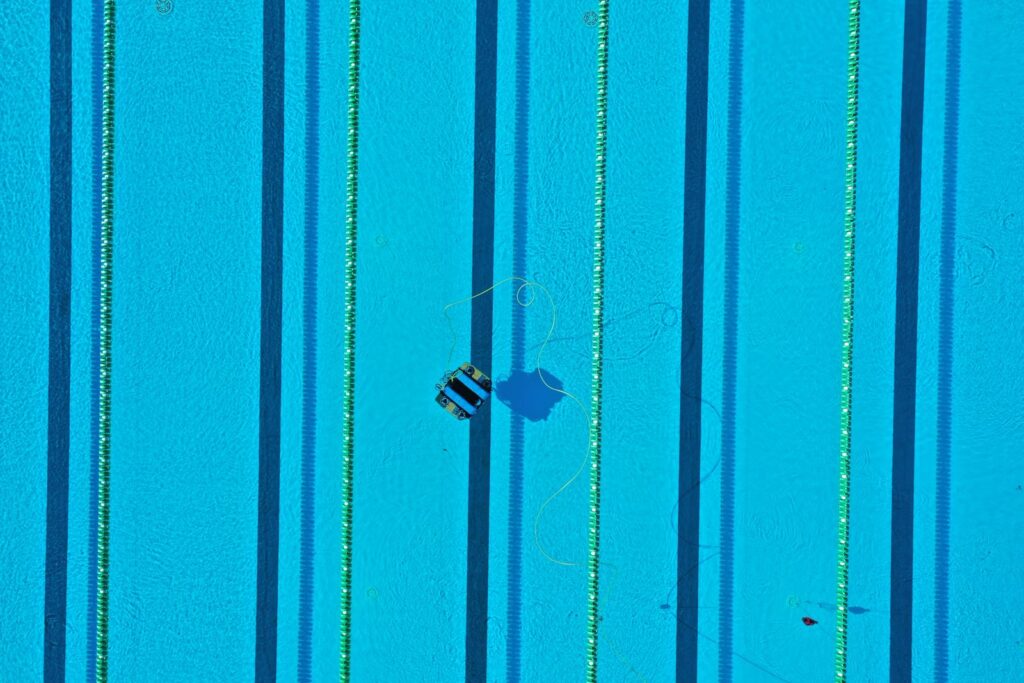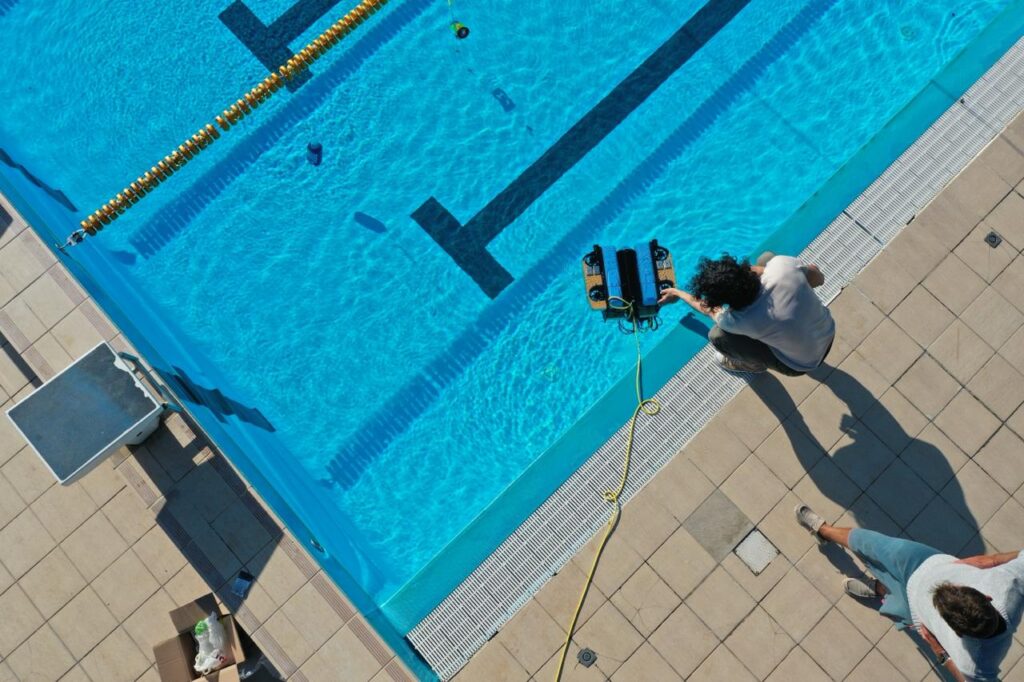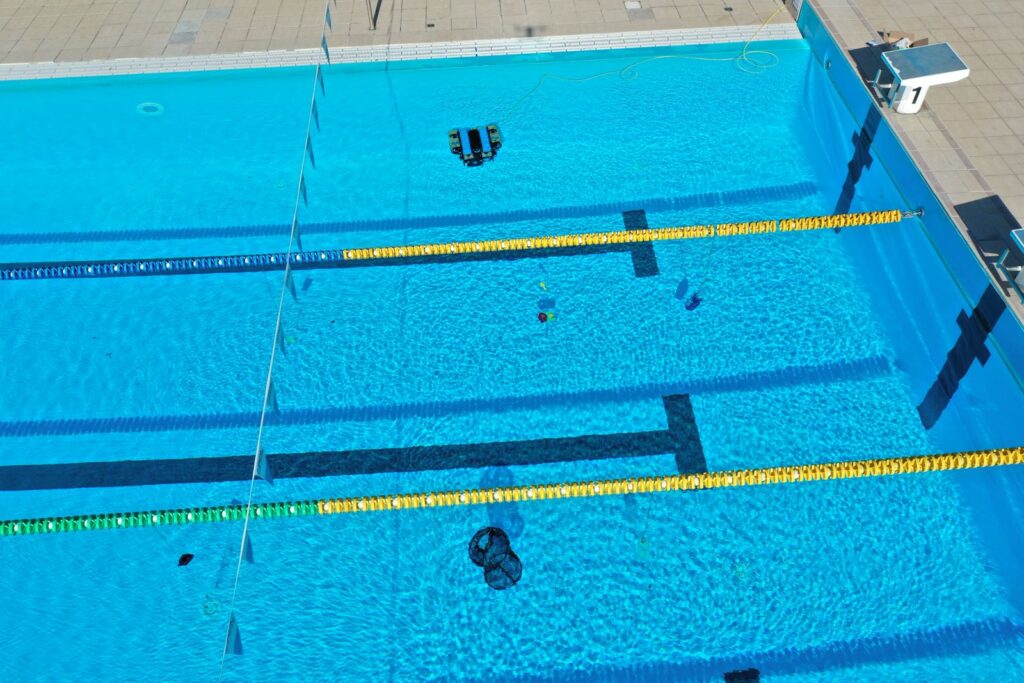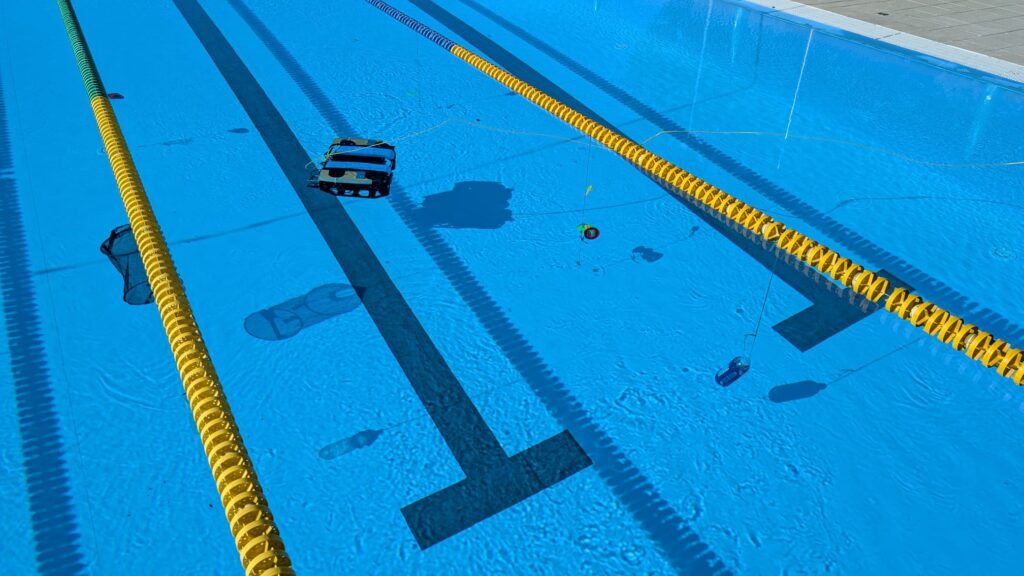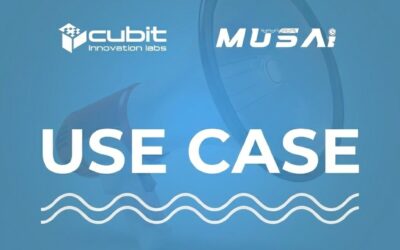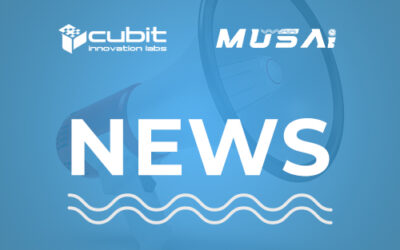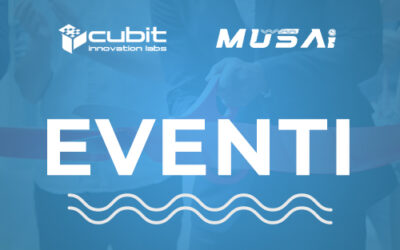The MUSAI – Modular Underwater System with Artificial Intelligence project has entered a new and decisive phase of experimentation, marking further progress in the development of the system.
Following the first open-water trials carried out in recent months, activities have now focused on testing at the Pontedera Municipal Pool, a controlled environment that enables realistic operating conditions to be recreated while ensuring the safety and reliability of validation activities.
During this stage, the project team concentrated on three main objectives:
- Hardware integration – verifying full compatibility between dual cameras, MUSAI’s camera and the one of the ROV platform, ensuring seamless communication across all subsystems;
- Artificial intelligence training – feeding new datasets into the system to strengthen recognition and classification capabilities for marine pollution;
- Navigation validation – testing the integrated system (MUSAI and ROV) in a controlled setting, simulating complex operational scenarios and monitoring stability during extended use.
Special attention was also devoted to thermal checks, essential to ensure that the system remains reliable even during long-duration missions at depth.
The results achieved so far represent a key milestone in the project’s evolution. Data collected during the pool tests are already contributing to the optimization of the prototype’s performance and to the planning of the final project steps, leading to completion by the end of October 2025.
The upcoming phases will include deeper open-water testing, aimed at validating MUSAI’s operational capabilities in real environments and strengthening its role as a valuable tool for environmental monitoring and scientific research.
MUSAI confirms its position as a tangible and versatile technological platform, designed to provide advanced solutions for the protection of marine ecosystems and the fight against underwater pollution.
👉 Stay tuned for further updates and insights from the upcoming testing campaigns.
